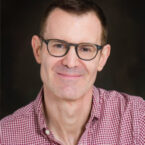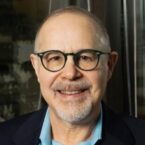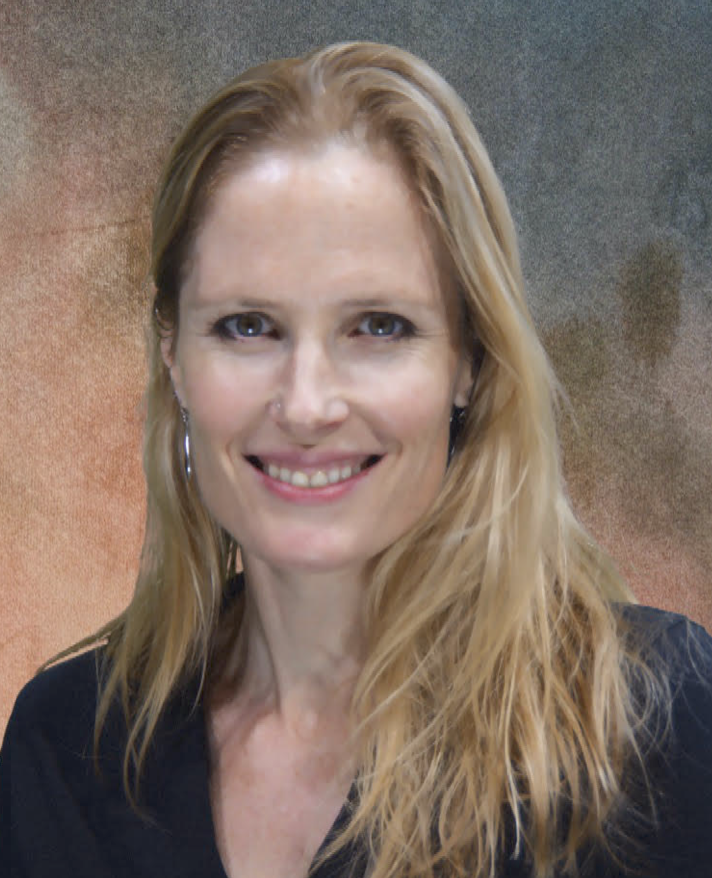Level 2 Certification Course

Presented by AEDP™ Institute Faculty:
Sigal Bahat, MA
Kari Gleiser, PhD
Benjamin Lipton, LCSW
Richard Harrison, PhD
Annika Medbo, MA
Live Online, Five 4-Day Modules, November 2023 – July 2024
Designed for Time Zones: Americas
Who the Essential Skills (ES1) Course is for:
Essential Skills is for Immersion Grads who are licensed mental health practitioners (or the local/regional equivalent to ‘licensed’*) as well as interns legally practicing under the license of a supervising practitioner.
These licensed mental health practitioners include: Psychologists, Social Workers, Counselors, Doctors, Nurses, Psychoanalysts, Psychotherapists, other Behavioral Health Therapists and related professionals.
*Every country / state / province has different rules regarding licensing. While AEDP™ Institute is generally familiar with navigating the licensing process in the U.S., we are not familiar with the process and regulations in most other countries. Our practice is to consult local AEDP practitioners for information on the nuances of education, licensing and other regulations in their areas.
If you have a question about the relevance of this course for you and/or your eligibility for this course please contact admin@aedpinstitute.org with your credentials before registering.
Course Content Level: Intermediate/Advanced
Course Description
AEDP™ psychotherapy is an empirically supported approach that seeks to alleviate patients’ psychological suffering by helping them process the overwhelming emotions associated with trauma in a way that facilitates corrective emotional and relational experiences that mobilize changes in the brain.
If you are interested in persuing AEDP certification, the Essential Skills is the second course in a series of certification courses for licensed therapists.
AEDP Essential Skills provides practical skills for the application of AEDP as well as a thorough immersion in the theory underlying the practice. Different skill sets will be introduced, explained, illustrated and practiced in each module, so that participants will emerge with both an understanding and a felt sense of how to practice AEDP.
Faculty Steeped in Theoretical Framework, Clinical Teaching from Videotapes, Experiential Exercises. These are the hallmarks of AEDP trainings. At AEDP Institute, we pride ourselves in how thoroughly and deeply we seek to both undo professional aloneness and engage in rigorous clinical teaching with skilled accompaniment. Our faculty are excellent as academics, clinicians and teachers. Participants deeply appreciate how effectively faculty presenters’ clinical video demonstrates “AEDP in action.” And faculty have skilled accompaniment from a large number of Experiential Assistants – up to and often including one Experiential Assistant for every four participants. Participants rave about the excellent attention and support they receive in this unique learning environment.
Routine for each module: AEDP skills are introduced with their theoretical foundations and with illustrations by way of clinical videotapes. Skills are then practiced in small group experiential exercises. Experiential practice time makes up roughly 40% of the course.
Course Objectives
- Summarize the theoretical foundations of AEDP
- Identify and demonstrate core elements of AEDP’s therapist stance: welcome, affirm, validate, orient
- Integrate healing and transformance from the get-go
- Apply moment-to-moment tracking of emotional states and their markers to clinical practice
- Construct dyadic safety and connection to promote exploration and risk-taking, and foster the capacity for optimal affective experience
- Identify and respond to different aspects within the Triangle of Experience to facilitate affective experience and processing to completion, optimize “attunement” and accelerate the healing process
- Explain how to assist in the processing of emotions to completion to activate deep transformational processes
- Define the four types of attachment styles: secure, anxious-ambivalent, disorganized and avoidant and demonstrate how to utilize different interventions according to attachment style
- Utilize various interventions to regulate/alleviate anxiety and traces of shame, bypass defenses and other inhibitory forces which block progress in therapy
- Identify and access core affective experiences including anger, sadness, fear and joy Identify the presence and/or expressions of transformance, the overarching motivational force driving positive change in AEDP, in clients
- Demonstrate utilizing transformance affects as a catalyst to maximize patient’s healing
Course Topics Module 1 – 5:
Module 1: “Healing from the Get-Go, Undoing Aloneness & the Clinical Roadmap for AEDP’s Transformation Journey”
Module 2 :”Attachment & Relational Work: Undoing Aloneness in Clinical Action”
Module 3: “State 1: The Top of the Triangle of Experience Working with Defense and Anxiety”
Module 4: “State 2 Work: the Processing of Core Affective Experience”
Module 5: “The Processing of Transformational Experience & The Integration of Transformation into Self State 3 & State 4 Work”
Suggested Readings for each module
Daily Schedule
View the daily agenda for all 5 modules here.
Location: Live Online and highly interactive
AEDP’s Live, Online Learning: Requirements & FAQ’s
Dates & Times
- Sessions run Friday – Monday
- Online sessions use the U.S. Eastern Time Zone
- Please double check the meeting times for your local time zone if not U.S. Eastern Time Zone by visiting http://www.24timezones.com/ or your resource of preference.
- Please check the dates and times closely for conflicts with Local Holidays, Religious Holidays, etc.
- Participants must commit to all 5 modules.
Times: 11:00 AM – 3:30 PM Eastern Time
2023 – 2024
Module 1: November 3-6, 2023 | Benjamin Lipton, LCSW
Module 2: January 26 – 29, 2024 | Annika Medbo, MA
Module 3: March 15-18, 2024 | Kari Gleiser, PhD
Module 4: May 3 – 6, 2024 | Richard Harrison, LCSW
Module 5: July 12 – 15, 2024 | Sigal Bahat, MA
Registration, Course Fees and Scholarships
Member Registration: $3,209 USD (please log in to register)
Member Registration with a payment plan: $3,259 (requires a deposit of $500 due at registration and 8 monthly payments of $344.37 starting one month after your registration date)
To attend you must have completed AEDP Immersion or an institute approved equivalent course
Non-Member Registration: $3259 USD
Non-Member Registration with a payment plan: $3309 (requires a deposit of $500 due at registration and 8 monthly payments of $344.87 starting one month after your registration date)
Are you a Member? Log in to get your Member discount
Meet the Presenters

Benjamin Lipton, LCSW
Benjamin Lipton, LCSW, is a Senior and founding Faculty member of the AEDP Institute. He has been instrumental in the development and teaching of AEDP across the US and in Canada, Sweden, Israel, Norway, and Denmark. He also supervises individuals and small groups of clinicians learning AEDP around the world. A sought after teacher and speaker, Ben is known for his open and engaging style, his humor, and his particular ability to translate complex theoretical concepts into user-friendly, accessible and engaging learning experiences. Ben has edited a book and contributed many book chapters and articles in psychology and social service journals as well as mainstream magazines. His most recent publication is a chapter on therapeutic presence in Undoing Aloneness & the Transformation of Suffering Into Flourishing: AEDP 2.0 edited by Diana Fosha. During the height of the HIV/AIDS epidemic in the US, Ben was the Director of Clinical Services at Gay Men’s Health Crisis (GMHC), (Read More…)
Annika Medbo, Licensed Psychotherapist

Richard Harrison, PhD
Richard Harrison, PhD, is a faculty member of AEDP™ Institute and a Registered Psychologist with over 25 years’ experience as a clinician and teacher. He was trained and supervised in AEDP by Diana Fosha, founder of the model. He is a Certified Supervisor in both AEDP and EFT. Richard teaches and supervises graduate students in the Counseling Psychology and Psychiatry departments at the University of British Columbia, and maintains a full clinical caseload with individuals and couples in private practice in Vancouver.
Richard has authored peer-reviewed publications on AEDP theory and practice; attachment-informed supervision; and therapist self-care; including a 2020 article in Psychotherapy on “Termination in 16-session

Kari Gleiser, PhD
Kari is a senior faculty member of the AEDP Institute. In her private practice, she specializes in applying AEDP to the treatment of complex trauma and dissociation. For 14 years, Dr. Gleiser was the co-founder/co-director of the Center for Integrative Health in Hanover, NH, a trauma center dedicated to multi-modal healing of mind, body and spirit.
Dr. Gleiser has co-developed an “intra-relational” model of therapy that imports AEDP’s relational and experiential interventions to patients’ internal systems of dissociated self-states. Dr. Gleiser has written clinical papers and book chapters and presents internationally on trauma treatment. She also explores the intersection of psychotherapy and spirituality, as well as the emerging field of psychedelic-assisted psychotherapy. She now lives in Tuscany, Italy.
ADA Accommodations | Attendance | Refund Policy | Questions
ADA
All AEDP Institute Trainings are offered Live Online.
Should you need any modification or accommodation to allow you to effectively
participate, please contact Marilia Rodriguez, admin@aedpinstitute.org or call
813-5553-1294 thirty days or more before the event so we can be sure to accommodate
you.
Attendance and Makeup Policy & Refunds
• Attendance and Makeup Policy
• Refund Policy
• Grievance Policy
Course and all customer service related questions:
Please contact Customer Service Administrator
Marilia Rodriguez
admin@aedpinstitute.org
813-553-1294
Office Hours: 9:00 – 5:00 PM Eastern Time USA
